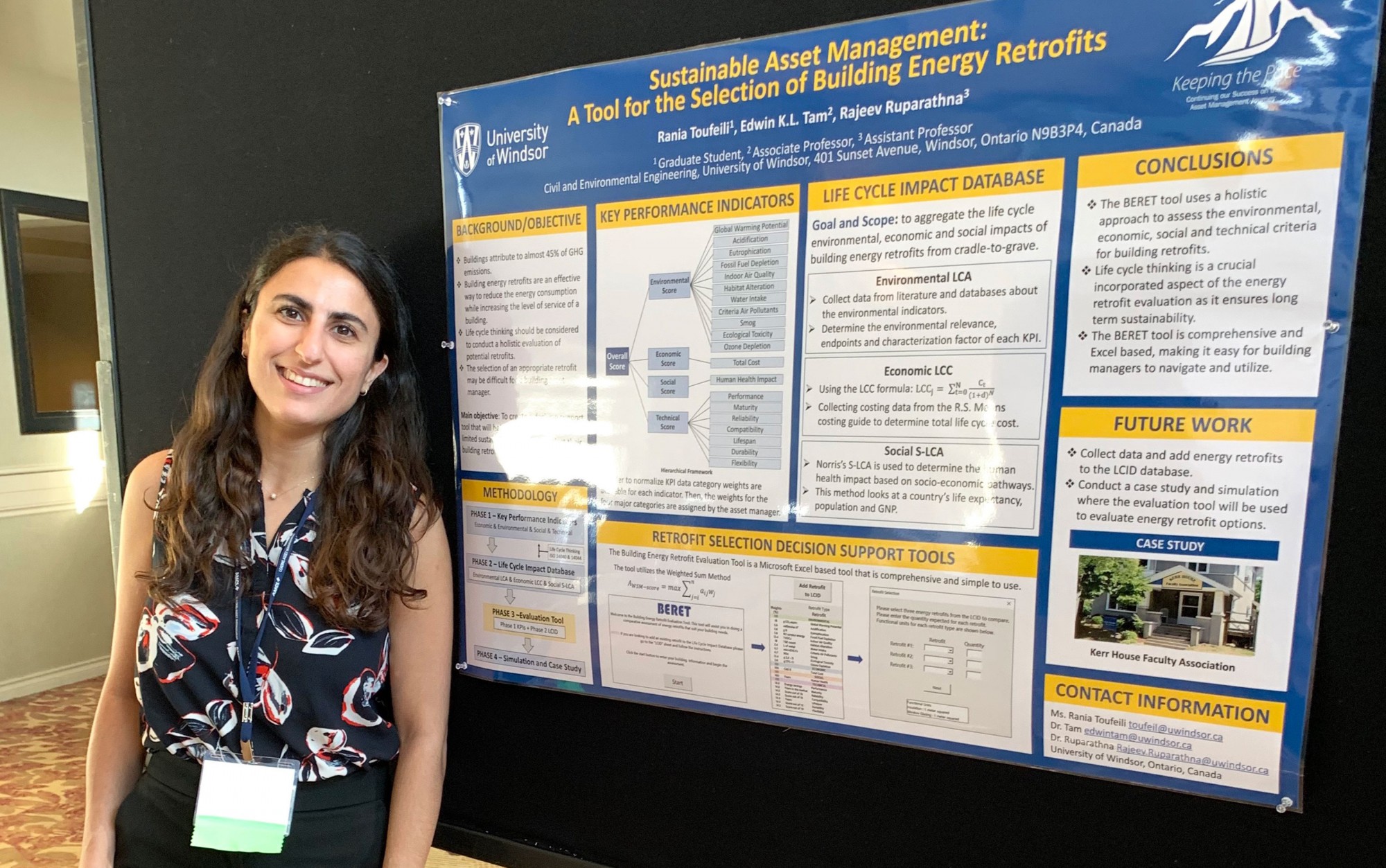 Environmental engineering master’s candidate Rania Toufeili placed second at the Canadian Network of Asset Managers student research.
Environmental engineering master’s candidate Rania Toufeili placed second at the Canadian Network of Asset Managers student research.
How does a building manager decide which energy retrofit is the most economical and least impactful on occupants and the environment?
Rania Toufeili has the answer. A master’s student of environmental engineering, she has designed an asset management decision support tool that can assist building managers in selecting the preferred technically feasible energy retrofit. The support tool landed her second place at the Canadian Network of Asset Managers student research symposium held May 6 to 9 in Kelowna, B.C.
“Building energy retrofits are a very effective way to decrease the energy consumption of a building and in turn decrease global greenhouse gas emissions,” Toufeili says.
Her tool combines multi-criteria decision making with life cycle thinking to develop a more comprehensive and expansive retrofit evaluation method than others on the market. The evaluation considers the energy retrofit’s environmental, economic, social, and technical performance by using a set of relevant key performance indicators.
Toufeili was selected from approximately 30 student applicants and nine student symposium presenters studying topics connected to asset management.
She graduated from the civil engineering program in 2017 with great distinction and completed the Outstanding Scholars program. Toufeili is the recipient of numerous awards, including, most recently, the 2018/2019 NSERC Canada Graduate Scholarships-Master’s Program award. She speaks and assists at engineering outreach events and co-founded Windsor’s Women in Engineering Club.
